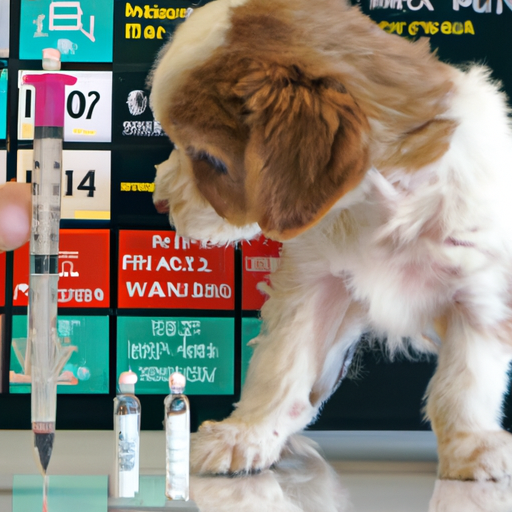Introduction
You are a new puppy parent, and you want to give your furry bundle of joy the best possible start in life. One of the most crucial decisions you have to make involves vaccinations. But when do you start? How old should a puppy be vaccinated? These are questions that plague many dog owners, seasoned and novice alike. To answer them, let’s delve into the world of puppy vaccinations, their importance, and scheduling.
The Importance of Vaccinating Your Puppy
A puppy’s immune system is like a blank canvas. It’s unexposed to the harsh realities of the world, making it vulnerable to various diseases. Vaccinations are essential in priming their immune system to fight off these diseases.
- Protection Against Deadly Diseases: Vaccines protect puppies from serious and often fatal diseases like Parvovirus, Distemper, and Rabies.
- Promote Public Health: Some dog diseases like Rabies can be transmitted to humans. By vaccinating your puppy, you’re not just protecting them but also the people around them.
- Legally Required: In most places, certain vaccinations like Rabies are legally required.
When to Vaccinate Your Puppy
Most veterinarians agree that puppies should begin their vaccinations at 6-8 weeks of age. The initial vaccine series usually consists of 3-4 vaccines, each given 3-4 weeks apart.
| Age (weeks) | Vaccine |
|---|---|
| 6 – 8 | First series (Distemper, Hepatitis, Parainfluenza, Parvovirus) |
| 10 – 12 | Second series (DHP, Leptospirosis, Bordatella) |
| 14 – 16 | Third series (DHP, Leptospirosis, Bordatella) |
| 16 | Rabies |
Note: This is a general schedule, and your vet might customise it based on your puppy’s health, breed, environment, and lifestyle.
Post Vaccination Care for Your Puppy
After the vaccination, you may notice some changes in your puppy’s behaviour. They may seem lethargic, have a reduced appetite or experience mild fever. These are normal reactions as their body is building immunity.
- Ensure your puppy gets plenty of rest.
- Keep them hydrated.
- Avoid intense physical activity for a few days.
- Monitor them for severe reactions like difficulty breathing, swelling, or persistent vomiting. If you see any of these signs, contact your vet immediately.
The Role of Booster Shots in Maintaining Health
Booster shots are follow-up vaccines given to maintain immunity against diseases. After the initial series, your puppy should get booster shots annually or every three years, depending on the vaccine and the laws in your area.
FAQs
1. What happens if a puppy gets vaccinated too early?
If a puppy gets vaccinated too early, the maternal antibodies might interfere with the vaccination, making it less effective.
2. Can I take my puppy outside before they’re fully vaccinated?
It’s advisable to avoid areas frequented by other dogs until your puppy is fully vaccinated. However, they can start socialising in controlled environments after their second vaccination.
3. Does my puppy need to be vaccinated for diseases not common in my area?
It’s best to consult your vet about this. They’ll advise you based on the risk factors specific to your puppy.
4. Can vaccinations make my puppy sick?
Vaccinations can cause mild reactions like lethargy and reduced appetite, which are normal. If your puppy shows severe reactions, contact your vet immediately.
5. How much does puppy vaccination cost?
The cost varies depending on the specific vaccines, your location, and the veterinary clinic. Some vets offer packages that bundle the cost of all vaccinations and booster shots.
In conclusion, as a caregiver, you have the power to protect your puppy from preventable diseases. Vaccinating your puppy on a recommended schedule is one of the best ways to ensure they live a long, healthy, and happy life.



